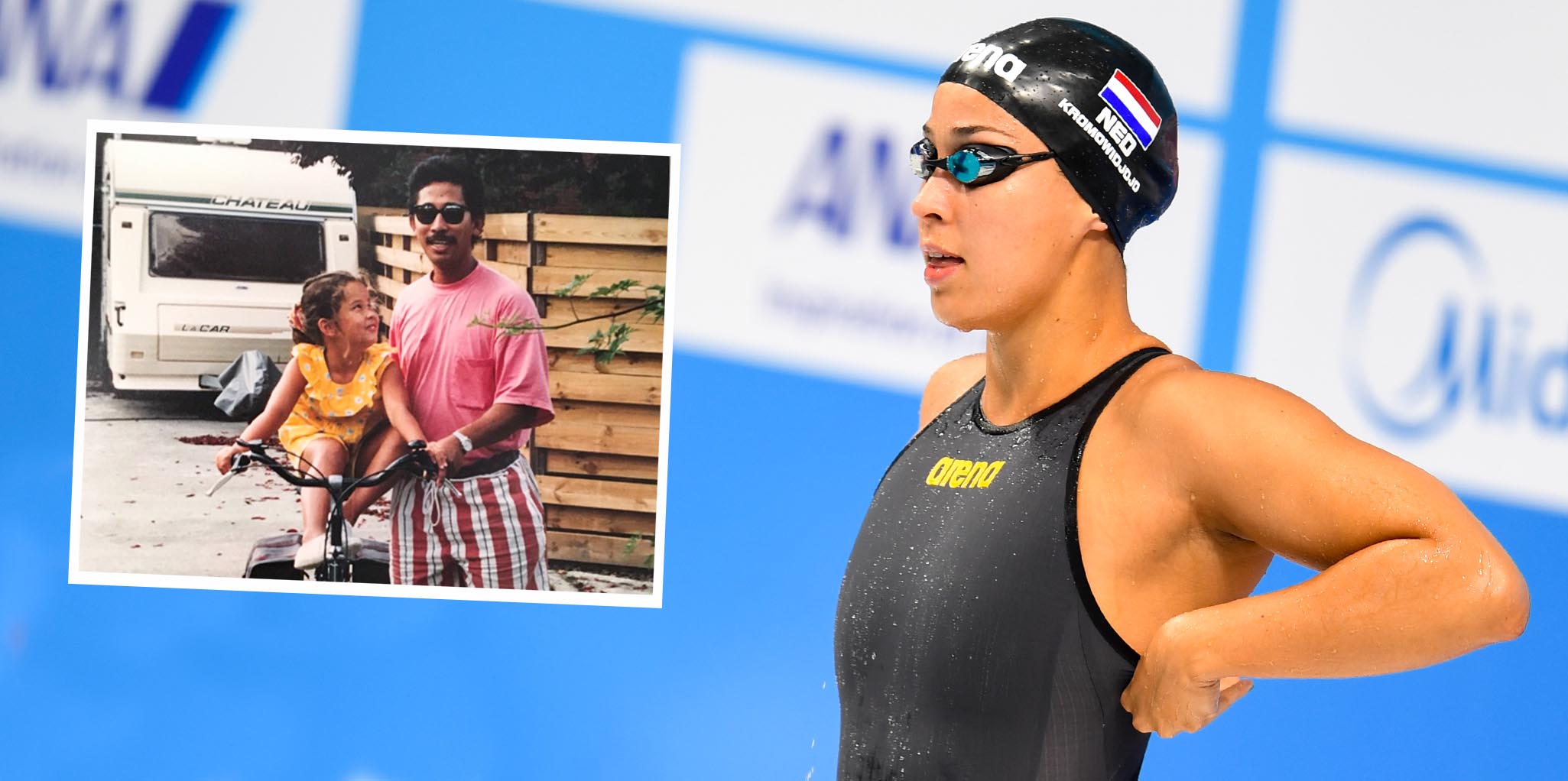Swimming is an individual sport: It's just you standing on the block. No one can swim the race for you. But outside the pool, swimmers are everything but alone. They have their teammates all around them and their families cheering them on from the sidelines. Even for the best swimmers in the world, it’s hard to be successful without support. Three-time Olympic Champion Ranomi Kromowidjojo, for example, shows how a loving and supporting family can lead to greatness.
“I don’t know what I would do without them. They’re my biggest fans,” said the Dutch freestyle sprinter about her parents as we talked to her about the importance of family for swimmers living their life in the fast lane.
If you’ve ever been to the World Championships or Olympic Games, there is a good chance that you’ve seen Netty and Rudi Kromowidjojo. Ranomi became one of the world’s best swimmers in 2006 by the age of just 15. Since then her parents have been to nearly every major international event where their daughter competed. Their support has been valuable both in Ranomi’s teenage years and when she became a star. She’s in contact with her parents nearly every day, not only to keep in touch but also because her mother helps with public relations and scheduling. Most importantly, Ranomi’s parents provide her with emotional support.
For instance, Ranomi’s 2016 Rio Olympics did not go as planned. She entered the competition as the defending champion in the 50 and 100m freestyle, but she didn’t win a single medal. “I was really sad and disappointed about my races,” she recalls, “but my parents were there, they came all the way from the Netherlands just to support me, and in these moments you realize how much you need your family, especially in the bad times.” Her parents helped her turn tears into smiles and soon she was back on the podium. Just one year later, the 27-year-old returned to international competition, winning four medals at the World Championships in Budapest.
"Our father used to tell us that our name, Kromowidjojo,
means that we are winners, but we always thought he was joking."
Ranomi Kromowidjojo is known for her optimistic attitude. She says that her father is an important source for her positive thinking. “He taught my brother and me to be kind to other people and to be friendly.” She says that her father leads by example. “He would always be nice to people even when they would call him names or be rude because he looked different.”
Ranomis father, Rudi Kromowidjojo, is of Javanese descent but was born in Suriname. Both the East Asian island of Java, and the South American country, Suriname, where once colonial outposts of the Netherlands. In that time, Dutch colonizers recruited Javanese people to move to Suriname to work. When Suriname gained independence in the 1970s, many descendants of those Javanese migrants left Suriname for Europe. Rudi Kromowidjojo was part of this movement to Europe, bringing with him a rare last name. For his daughter, the name became quite literal. “Our father used to tell us that our name, Kromowidjojo, means that we are winners, but we always thought he was joking. We didn’t really like it when he said that because it seemed a bit cocky,” she recalls.
Only after the London Olympics in 2012, she realized that her father’s words were not just some trick to motivate them. “People researched it and told me that this was actually true.” Kromowidjojo is a Javanese name; “widjojo” means “victory” and “kromo” means “as planned” or “orderly.” Roughly translated, one could say that the family name means “destined for victory.”
Familial roots were always part of Ranomi Kromowidjojo’s life. She recalls happy memories from having a diverse cultural background. “I grew up with many cultures. Family parties, food, music, dancing…so, yeah, the culture did and does play a role.” Her background gave her more than an open, worldly mindset. Her diverse upbringing also had an important influence on her development as an athlete.
“I realize more and more that having such a nice family
who are always there for me
should not to be taken for granted.”
“My father was a karate teacher and used to compete on national level. He taught me what it means to be an athlete without making sports stressful,” says the Olympian, who swam and did karate until the age of 12, when she decided to concentrate more on life in the pool. That decision led her to not just to three Olympic gold medals, but also 12 World Championships and 22 European Championships titles. And she isn’t done yet. Ranomi is already looking forward to the summer when she can compete against Swedish sprint star Sarah Sjöström and the Danish Olympic champion Pernille Blume at the European Championships in Glasgow.
Her parents hope to be there to support her. After 12 years of being a world-class athlete, Ranomi still looks forward to seeing them on the sidelines. “I realize more and more that having such a nice family who are always there for me should not to be taken for granted,” she says. Even though she has to stand alone on the block and compete by herself, “thanks to the people who love me, I’m never alone in my heart.”

